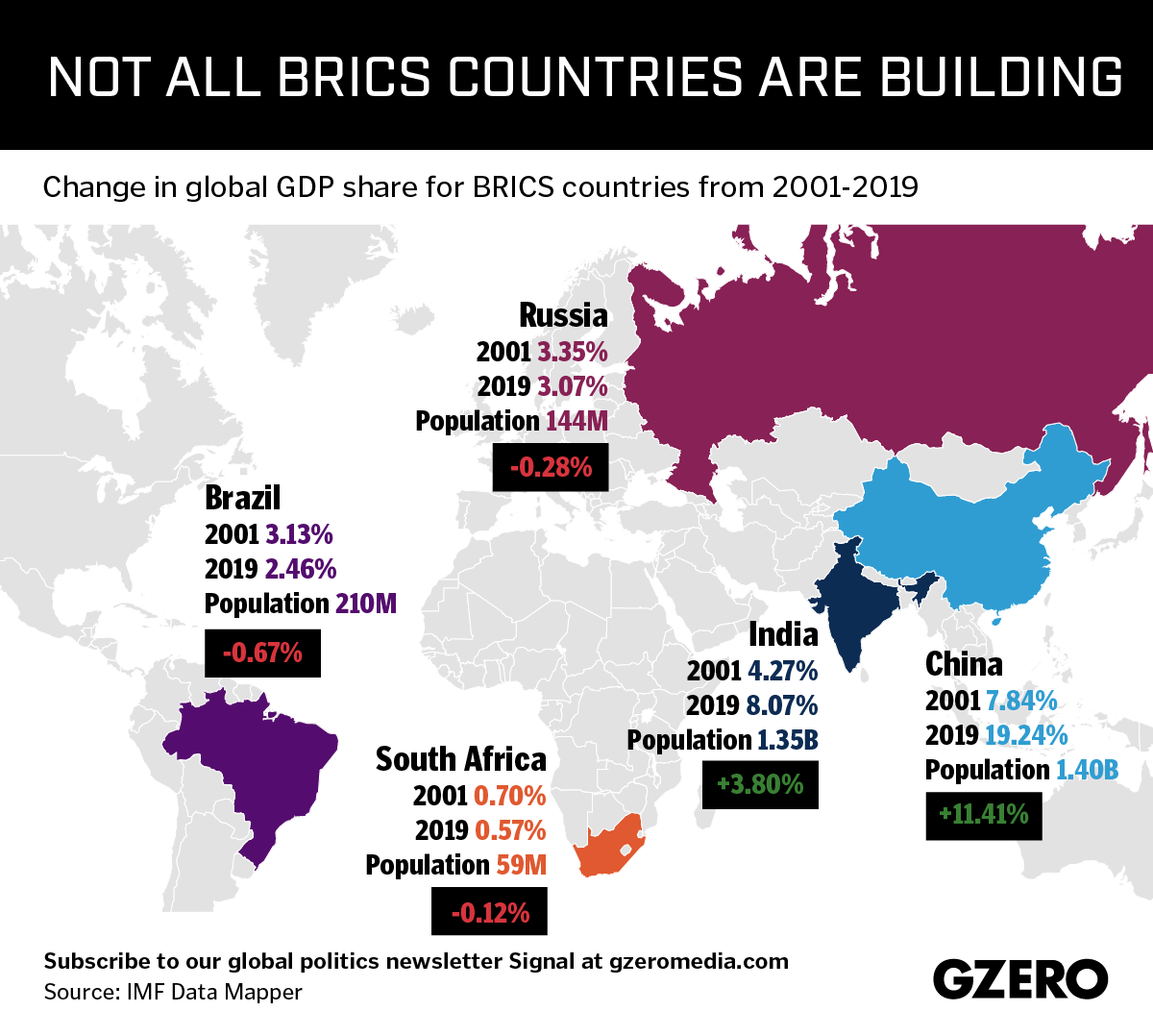The BRICS – a bloc of nations comprising Brazil, Russia, India, China and South Africa – meets today in Brazil's capital for its annual summit. The idea of the "BRIC" grouping comes from a 2001 Goldman Sachs paper, which predicted that these rising economies, despite their major differences, would soon be among the world's largest, and that as a group they would command more global clout as a result. The idea took on a real-world structure in 2009, when Brazil, Russia, India and China began holding regular BRIC summits, and in 2010 they invited South Africa to join as well. But this vision of BRICS power hasn't necessarily materialized: China's share of global GDP has boomed – and India's growth has been significant, too. But the B, R, and S shares of the global economy have actually shrunk over the past 20 years. Here's a look at how these economies have fared since the idea of the BRICS was born.
More For You
100 million: The number of people expected to watch the Super Bowl halftime performance with Bad Bunny, the Puerto Rican superstar and newly minted Album of the Year winner at the Grammys.
Most Popular
Think you know what's going on around the world? Here's your chance to prove it.
An imminent US airstrike on iran is not only possible, it's probable.
Americans are moving less — and renting more. Cooling migration and rising vacancy rates, especially across the Sunbelt, have flattened rent growth and given renters new leverage. For many lower-income households, that relief is beginning to show up in discretionary spending. Explore what's changing in US housing by subscribing to Bank of America Institute.
